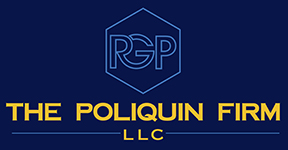Delaware Attorney Ron Poliquin answers the question about Medical Marijuana users testing positive in the workplace and how that could affect someone who legally smokes marijuana in Delaware.
Delaware Medical Marijuana Law in the Workplace
Ron Poliquin here, Delaware Employment Attorney at DoverLawOffice.com
I've gotten a lot of questions regarding the medical marijuana card holders and their rights, as far as employment rights or whether or not they can be terminated. Whether or not they can have any kind of adverse effects by holding a medical marijuana card. Delaware Title 16 - 4905 is called the Delaware Medical Marijuana Act. That made it legal for, by doctor prescription, that if you got a medical marijuana card you could use medical marijuana. Part of that statute actually deals with employment rights, meaning your rights as an employee as it relates to medical marijuana. Can you have a medical marijuana card and be terminated for that reason? The answer that we have in the statute is no, you cannot be discriminated against because you are a medical marijuana card holder in the state of Delaware.
Under the statute it says, unless of failure to do so would cause the employer to lose a monetary or licensing related benefit under federal law or federal regulations, an employer, your boss, may not discriminate against a person in hiring, termination or any term or condition of employment. That would include pay raises, that could include promotions, that could include terms and conditions of employment. It is pretty broad, that includes the size of your office, job titles or otherwise penalize a person if the discrimination is based on the following:
- The persons status as a cardholder.
- A registered qualifying patients positive drug test for medical marijuana components or med tabulites, unless the patient use possessed or was impaired on the promises of the place of employment during the hours in point.
These are not specific but very broad protections meaning basically if I was an employee or employer. Look at it like obviously, alcohol is legal in this country, but you can't come to work drunk. You can't be impaired. If you come to work high, acting like Cheech and Chong or something like that then you can be terminated just for the mere fact that you have positive tests. This happens a lot in a pre-employment drug screening where marijuana obviously stays in your system a lot longer than other drugs. Just because marijuana is part of a test and you test positive for the pre-employment drug screen, doesn't mean you can be terminated. That's how I read it.
Based on all my interactions with a lot of employers, they read it broadly as well. There is no safety exception, meaning there's no exception for construction companies or anything. The only exception being if it involves monetary or licensing related benefit under federal law or federal regulations. A lot of times a common way to look as if the construction contract involved federal money, I have seen that occur.
What are terms of condition of employment, denial of employment, compensation and benefits, denial of disability, maternity leave, termination, loss of shifts or less desirable shift, suggestion of a preferred candidate on a job advertisement, denial of use of company facilities or benefits, or favoritism? Basically, you can't favor somebody that doesn't have medical marijuana card. Exclusion of candidates from hiring process. There have been no cases to my recollection in Delaware where an employee has sued based on the medical marijuana right statue. I'm confident that if you were not hired because of a drug screening where you were tested positive for marijuana and you had a valid medical marijuana card, that you have a good case my friend. Therefore, I would recommend you get a good employment attorney. So, the answer is the medical marijuana right statute protects your employment rights if you hold a medical marijuana card. OK that's Ron Poliquin for DoverLawOffices.com send me your questions or come see me for consultation if you want learn more about employment law.


